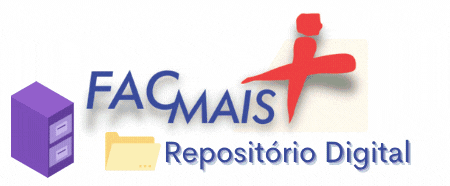Use este identificador para citar ou linkar para este item:
http://65.108.49.104:80/xmlui/handle/123456789/542| Tipo: | Dissertação |
| Título: | TDICS NA EDUCAÇÃO ESCOLAR: POLÍTICAS PÚBLICAS PARA IMPLEMENTAÇÃO DOS RECURSOS TECNOLÓGICOS DA REDE PÚBLICA DE ENSINO DO ESTADO DE GOIÁS |
| Autor(es): | FERREIRA, Janemayre Rosa |
| Primeiro Orientador: | LÔBO, Daniella Couto |
| Resumo: | Esta dissertação está inserida na Linha de Pesquisa: Educação, Instituições e Políticas Educacionais (EIPE) do Mestrado em Educação, do Programa de Pós-Graduação da Faculdade de Inhumas-PPGE/ FacMais. A pesquisa trata da inserção das Tecnologias Digitais da Informação e Comunicação (TDICs) na educação básica, com destaque para implementação e usos das tecnologias nas escolas públicas do Estado de Goiás. Esta previsto como competência geral na Base Nacional Comum Curricular – BNCC – que os alunos devem: “compreender, utilizar e criar tecnologias digitais de informação e comunicação de forma crítica, significativa, reflexiva e ética nas diversas práticas sociais incluindo as escolares” (BNCC, 2018). Embora o documento curricular nacional e o estadual DC-GO deem ênfase a inserção e uso das TDICS, será que as escolas da rede pública dispõem de equipamentos suficientes para suprir a demanda escolar? Neste sentido, o objetivo geral da pesquisa foi investigar o processo de implementação dos recursos tecnológicos na rede pública de ensino do Estado de Goiás. Dentre os objetivos específicos, o estudo buscou mostrar o processo histórico de usos das ferramentas tecnológicas digitais e analógicas na educação. Além disso, apresentou os programas do governo Federal e Estadual e as políticas públicas para incentivo do letramento digital por meio da inserção das TDICs nas unidades escolares da rede pública de ensino. Buscou-se compreender o processo de evolução da internet, das tecnologias analógicas, digitais, educacionais e assistivas na educação. Destacar os conceitos de letramento digital, ensino híbrido e educação a distância. Mostrar o uso das TDICS por professores e alunos na educação básica durante a Pandemia e pós Pandemia no Estado de Goiás. Percebeu-se que há no Brasil a exclusão digital de alunos tanto no âmbito escolar, quanto no social e ao mesmo tempo que a cultura digital (cibercultura) é uma realidade em curso, mas para se afirmar no ambiente escolar há um caminho logo a ser percorrido. Visto que é preciso investir para amenizar as problemáticas que perpassam desde a preparação dos professores até o baixo investimento em tecnologias nas escolas públicas. Quanto a metodologia, realizou-se o estudo exploratório, de natureza qualitativa, por meio de pesquisa bibliográfica e documental. O estudo tem como fundamentação teórica as obras de: BRUZZI (2016), CASTELLS (1999), FAVA, (2014), LÉVY (1993 -1999), KENSKI (2012), MOEMA (2013), MORAN (2015), PEREIRA (2014), PAIVA E COSTA (2015), PEIXOTO (2022), entre outros. |
| Abstract: | This dissertation is part of the Research Line: Education, Institutions and Educational Policies (EIPE) of the Masters in Education, of the Graduate Program of the Faculty of Inhumas-PPGE/FacMais. The research deals with the insertion of Digital Information and Communication Technologies (TDICs) in basic education, with emphasis on the implementation and uses of technologies in public schools in the State of Goiás. It is foreseen as a general competence in the National Common Curricular Base - BNCC - that students: "understand, use and create digital information and communication technologies in a critical, meaningful, reflective and ethical way in the various school practices including social ones" (BNCC, should 2018). Although the state education system for school use TD is mandatory to supply the ICS public network, what will be needed to meet school use and what will be needed to meet school demand? In this sense, the general objective of the research was to investigate the process of implementing technological resources in the public school system in the State of Goiás. Among the specific objectives, the study sought to show the historical process of using digital and analog technological tools in education. In addition, it presented the federal and state government programs and public policies to encourage digital literacy through the insertion of TDICs in school units of the public education network. We sought to understand the process of evolution of the internet, of analogue, digital, educational and assistive technologies in education. Highlight the concepts of digital literacy, hybrid teaching and distance education. Show the use of TDICS by teachers and students in basic education during the Pandemic and post Pandemic in the State of Goiás. There is in Brazil the digital exclusion of students both at school and socially. That digital culture (cyberculture) is already an ongoing reality, but to assert itself in the school environment there is a way to go. Since it is necessary to solve the problems that permeate from the preparation of teachers to the low investment in technologies in public schools. As for the methodology, an exploratory study of a qualitative nature was carried out, through bibliographical and documentary. The study is theoretically based on works by: BRUZZI (2016), CASTELLS (1999), FAVA, (2014), LÉVY (1993 -1999), KENSKI (2012), MOEMA (2013), MORAN (2015), PEREIRA (2014), PAIVA E COSTA (2015), PEIXOTO (2022), among others. |
| Palavras-chave: | Educação Tecnologias digitais da Informação e Comunicação (TIDCs) Formação docente Estado de Goiás |
| CNPq: | CNPQ::CIENCIAS HUMANAS::EDUCACAO |
| Idioma: | por |
| País: | Brasil |
| Editor: | Faculdade Facmais |
| Sigla da Instituição: | FACMAIS |
| metadata.dc.publisher.department: | Departamento 1 |
| metadata.dc.publisher.program: | PPG1 |
| Tipo de Acesso: | Acesso Aberto |
| URI: | http://65.108.49.104:80/xmlui/handle/123456789/542 |
| Data do documento: | 9-Ago-2022 |
| Aparece nas coleções: | Dissertações do Mestrado |
Arquivos associados a este item:
| Arquivo | Descrição | Tamanho | Formato | |
|---|---|---|---|---|
| JANEMAYRE ROSA.pdf | 1.93 MB | Adobe PDF | Visualizar/Abrir |
Os itens no repositório estão protegidos por copyright, com todos os direitos reservados, salvo quando é indicado o contrário.
